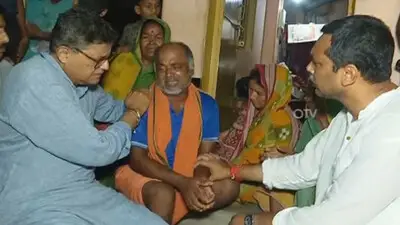Recommended Stories
The National Pharmaceutical Pricing draft policy, unveiled by the department of pharmaceuticals in October last year, proposes to cap prices of 348 essential medicines and their formulations at an average price of three best-selling brands.
The Group of Ministers (GoM) on National Pharmaceutical Policy are expected to meet shortly to make final recommendations to the Cabinet.
Analysts opined that the regulatory authorities have wrongly been focusing on price controls in the belief that this will boost access to healthcare. But the experience of other nations, and India`s past experience, indicates the desired outcome won`t be achieved via price caps because multiple hurdles hinder healthcare access in India - and it is these that need to be addressed.
The efficacy of modern medicines has pushed average life expectancy in India from little more than 40 years in the 1960s to the world average of about 67 years. "This success has sparked an increase in non-communicable diseases, which present-day treatments cannot cure. The situation makes it imperative to support the search for innovative drugs that cure such ailments," said David Taylor, Professor of Pharma and Public Health Policy at UCL School of Pharmacy, University of London.
"Price caps have the opposite effect, though, by disincentivising the sale of innovative drugs or drug research in India. Patients with incurable endemic diseases will continue to suffer in silence since cures for such diseases may no longer be actively researched," Taylor said.
Keeping this in mind, Prof Taylor believes healthcare authorities should avoid cost-based pricing or price caps. Instead, a balance is required between the public need for low-priced drugs, and societal needs for sustained innovation and access to affordable healthcare.
Under the draft National Pharmaceutical Pricing Policy, expansion of the essential medicines list could include a wider range of products, backed by a narrowly-defined, cost-based pricing system. If this scenario comes true, producing and selling drugs for such treatments in India would be so unviable that supplies will be curbed, not increased.
"Since India has the lowest medicine prices in the world, more price cuts would be counter productive. Low costs do not necessarily translate into improved healthcare access. Universal access to affordable and quality healthcare calls for robust investments in health infrastructure and other facilities across the nation, not just in urban areas," said Dr H L Kapoor, President, IMA Himachal Pradesh State Chapter.
"Highlighting the high prices of cancer drugs to call for lower prices is not a sound argument. Considering the high costs of research in oncology, capping the prices of these drugs may only force manufacturers to withdraw such drugs from the market if the prices are insufficient to cover research, discovery and distribution costs. Instead, in the case of cancer care, support systems need to be created and funded by the state to ensure that those unfortunate enough to develop cancer do not go without treatment due to financial constraints or cost issues," Taylor added.












